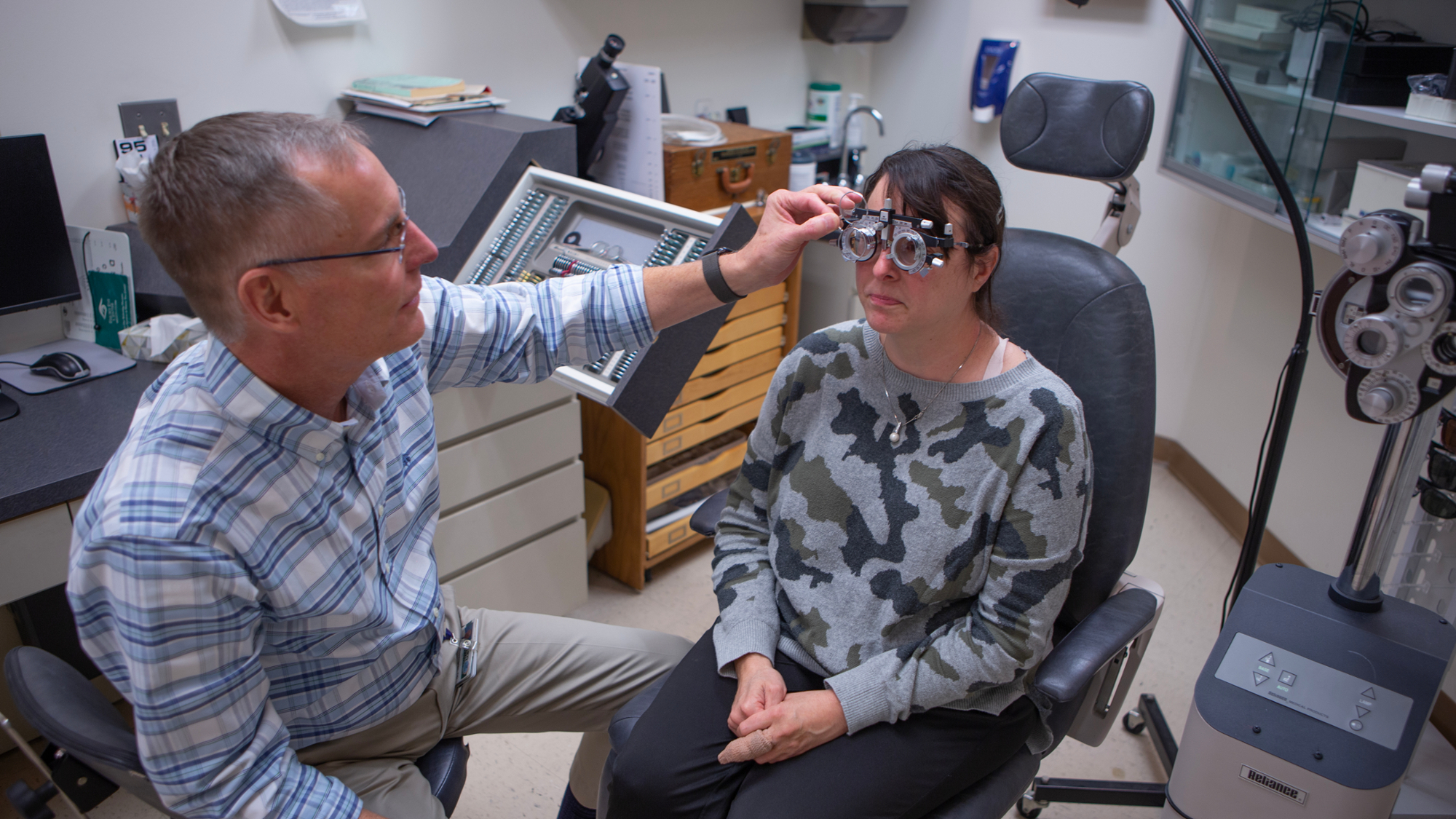Advancing the field of optometry
Clinicians in the optometry section see patients of all ages whose vision impairment is not corrected by surgery, medical treatment or standard optical remedies. They routinely deliver primary eye care services as well as many annual services, including dilated eye exams, contact lens fittings and evaluation, prescription services and vision rehabilitation services for those who are experiencing vision impairment. They also work with patients to assess their need for comprehensive ophthalmology services and other specialty sections for medical and/or surgical care, as indicated.
In 2023, the Optometry Section expanded to offer a one-year post-graduate residency training for graduates of optometry school. Residents in this program gain experience assessing and addressing the vision needs of the diverse populations that frequent the Emory Eye Center. Optometric residents also learn to seamlessly collaborate with ophthalmologists and other specialty physicians to meet patient needs.
The Ned S. Witkin Vision Rehabilitation Service
The Emory Eye Center's Low Vision Rehabilitation Service offers services and devices that help individuals with reduced vision to perform their daily activities. The service plays a unique role in meeting patient needs, as clinicians are trained to not only assist individuals in identifying which assistive devices may suit them; they also connect patients with an occupational therapist who can train patients to optimize their use of different devices, including:
Specialty Contact Lens Service
The Optometry Section evaluates and fits patients with a variety of ocular conditions that require contact lens correction. Clinicians are trained to fit patients with every type of specialty contact lens, from a basic disposable soft lens to the most specialized and complex lenses available.
Among the disorders addressed are karatoconus, corneal ectasia, complex cataract surgery, irregular or scarred cornea, severe dry eye syndrome, graft-versus-host disease (GVHD), limbal stem cell deficiency (LSCD), Sjögren’s syndrome, neurotrophic keratitis, or Stevens-Johnson syndrome.
Emory Eye Center optometrists can prescribe every type of contact lens, including
• Specialized keratoconus lenses (custom soft, hybrid, and scleral)
• Extended-wear contact lenses for aphakia
• Colored lenses and tinted lenses for light-sensitive eyes
• Disposable lenses and daily-wear soft lenses
• Lifestyle contact lenses (such as multifocal and bifocal) to provide independence from reading glasses


